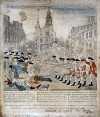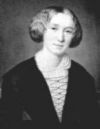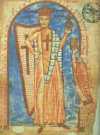Definition: (noun) An unforeseen event that disrupts the normal course of things; an inopportune occurrence.
Synonyms: mishap, predicament, calamity.
Usage: His cross-country tour had its full share of comic contretemps.
Discuss
Source: The Free Dictionary
 Many Bostonians resented the heavy British military presence in their city during the late 1700s, and the soldiers’ enforcement of the unpopular Townshend Acts merely exacerbated the tense situation. On March 5, 1770, soldiers opened fire on an aggressive, rioting civilian mob, killing five men. The Boston Massacre, as it became known, fueled the anti-British sentiment that culminated in the American Revolutionary War. Which future US president served as the troops’ defense lawyer?
Many Bostonians resented the heavy British military presence in their city during the late 1700s, and the soldiers’ enforcement of the unpopular Townshend Acts merely exacerbated the tense situation. On March 5, 1770, soldiers opened fire on an aggressive, rioting civilian mob, killing five men. The Boston Massacre, as it became known, fueled the anti-British sentiment that culminated in the American Revolutionary War. Which future US president served as the troops’ defense lawyer?  March 5 marks the anniversary of the
March 5 marks the anniversary of the  Luxemburg was a Polish-born German revolutionary and Marxist political theorist. She helped found the Polish Socialist party, was a leader in the German Social Democratic Party, and collaborated with Karl Liebknecht in founding the Spartacus League in 1916. Imprisoned during World War I for opposing the war, Luxemburg continued to secretly write politically inflammatory essays and had them illegally smuggled out of prison and published. How did she die?
Luxemburg was a Polish-born German revolutionary and Marxist political theorist. She helped found the Polish Socialist party, was a leader in the German Social Democratic Party, and collaborated with Karl Liebknecht in founding the Spartacus League in 1916. Imprisoned during World War I for opposing the war, Luxemburg continued to secretly write politically inflammatory essays and had them illegally smuggled out of prison and published. How did she die?  Velcro is a brand name of fabric hook-and-loop fasteners. It was invented by a Swiss engineer who came up with the idea after examining the burdock seeds that kept sticking to his clothes. Velcro consists of a layer of hooks and a layer of loops which, when pressed together, form a bond that can be very strong: full-body hook and loop suits have been made that can hold a person to a suitably-covered wall. Velcro was even involved in the first medical procedure of what kind?
Velcro is a brand name of fabric hook-and-loop fasteners. It was invented by a Swiss engineer who came up with the idea after examining the burdock seeds that kept sticking to his clothes. Velcro consists of a layer of hooks and a layer of loops which, when pressed together, form a bond that can be very strong: full-body hook and loop suits have been made that can hold a person to a suitably-covered wall. Velcro was even involved in the first medical procedure of what kind?  Death is the only physician, the shadow of his valley the only journeying that will cure us of age and the gathering fatigue of years.
Death is the only physician, the shadow of his valley the only journeying that will cure us of age and the gathering fatigue of years.  Frederick Barbarossa was elected King of Germany in 1152 and crowned Holy Roman Emperor in 1155. Shortly thereafter, an apparent misunderstanding with Pope Adrian IV led Frederick to mount military operations against Italy and install an antipope in opposition to Adrian’s successor. The schism continued for some time, but Frederick and the Catholic pontiff ultimately reconciled. According to scholars, what factors may have contributed to Frederick’s drowning death in the shallow Saleph River?
Frederick Barbarossa was elected King of Germany in 1152 and crowned Holy Roman Emperor in 1155. Shortly thereafter, an apparent misunderstanding with Pope Adrian IV led Frederick to mount military operations against Italy and install an antipope in opposition to Adrian’s successor. The schism continued for some time, but Frederick and the Catholic pontiff ultimately reconciled. According to scholars, what factors may have contributed to Frederick’s drowning death in the shallow Saleph River? 
 Henry the Navigator, a Portuguese prince, figured strongly in Portugal’s early development as a colonial empire. Though not a navigator himself, Henry was a great patron of exploration and is credited with establishing a school for navigators and encouraging the study of navigational instruments and cartography. Under his patronage, Portuguese sailors explored and colonized Madeira, the Cape Verde Islands, and the Azores. Where did Henry get the money to fund these expeditions?
Henry the Navigator, a Portuguese prince, figured strongly in Portugal’s early development as a colonial empire. Though not a navigator himself, Henry was a great patron of exploration and is credited with establishing a school for navigators and encouraging the study of navigational instruments and cartography. Under his patronage, Portuguese sailors explored and colonized Madeira, the Cape Verde Islands, and the Azores. Where did Henry get the money to fund these expeditions?